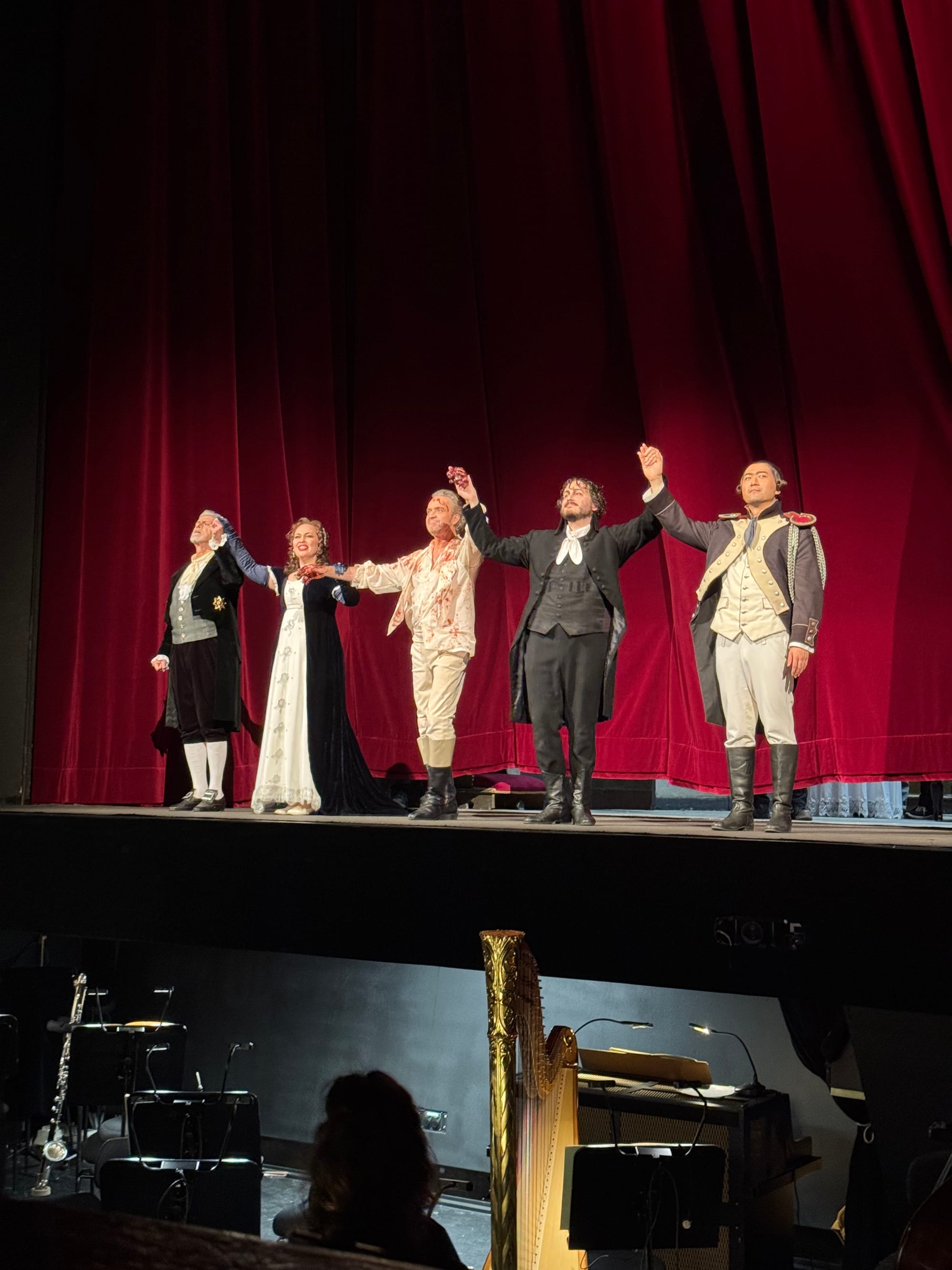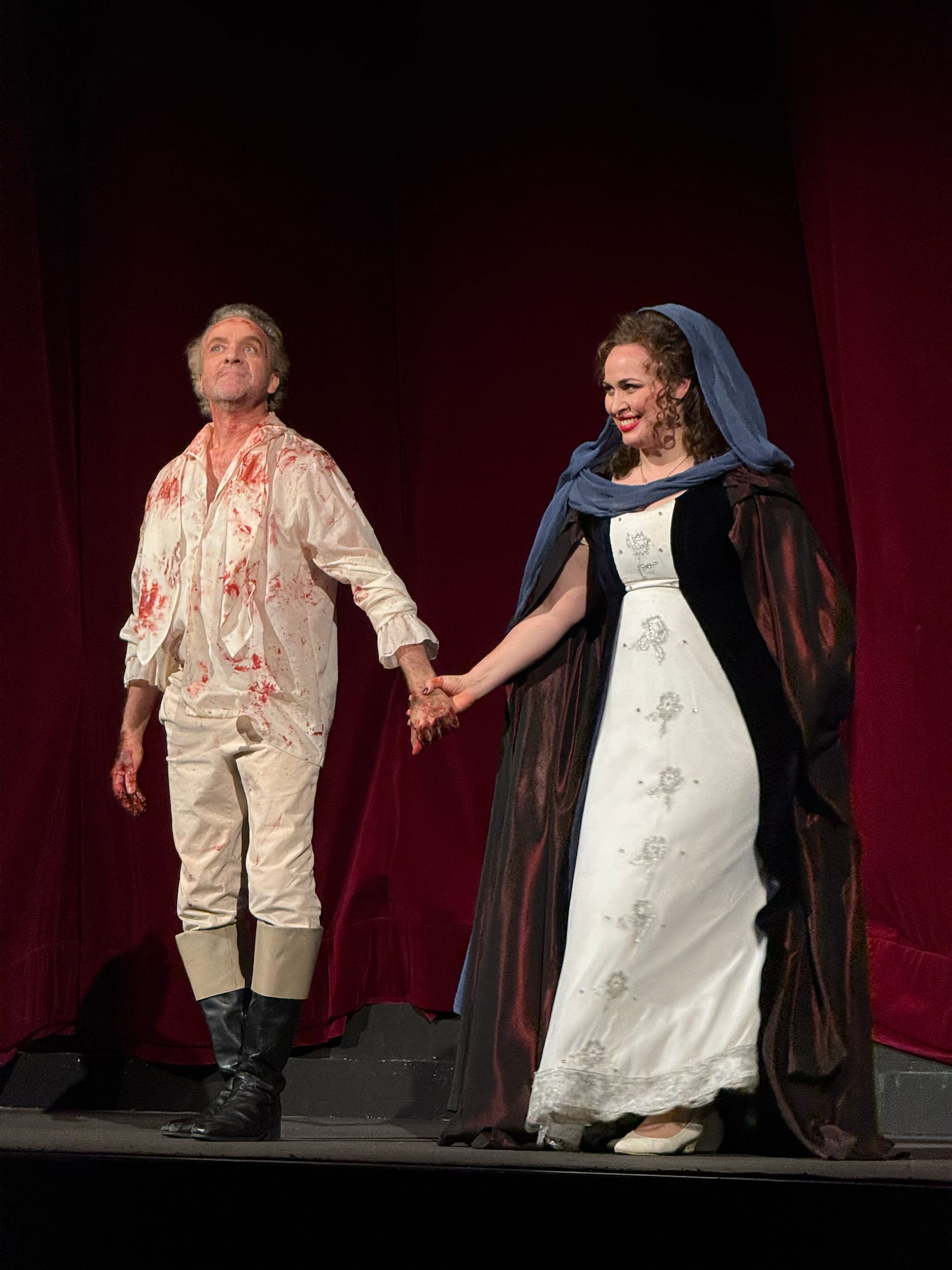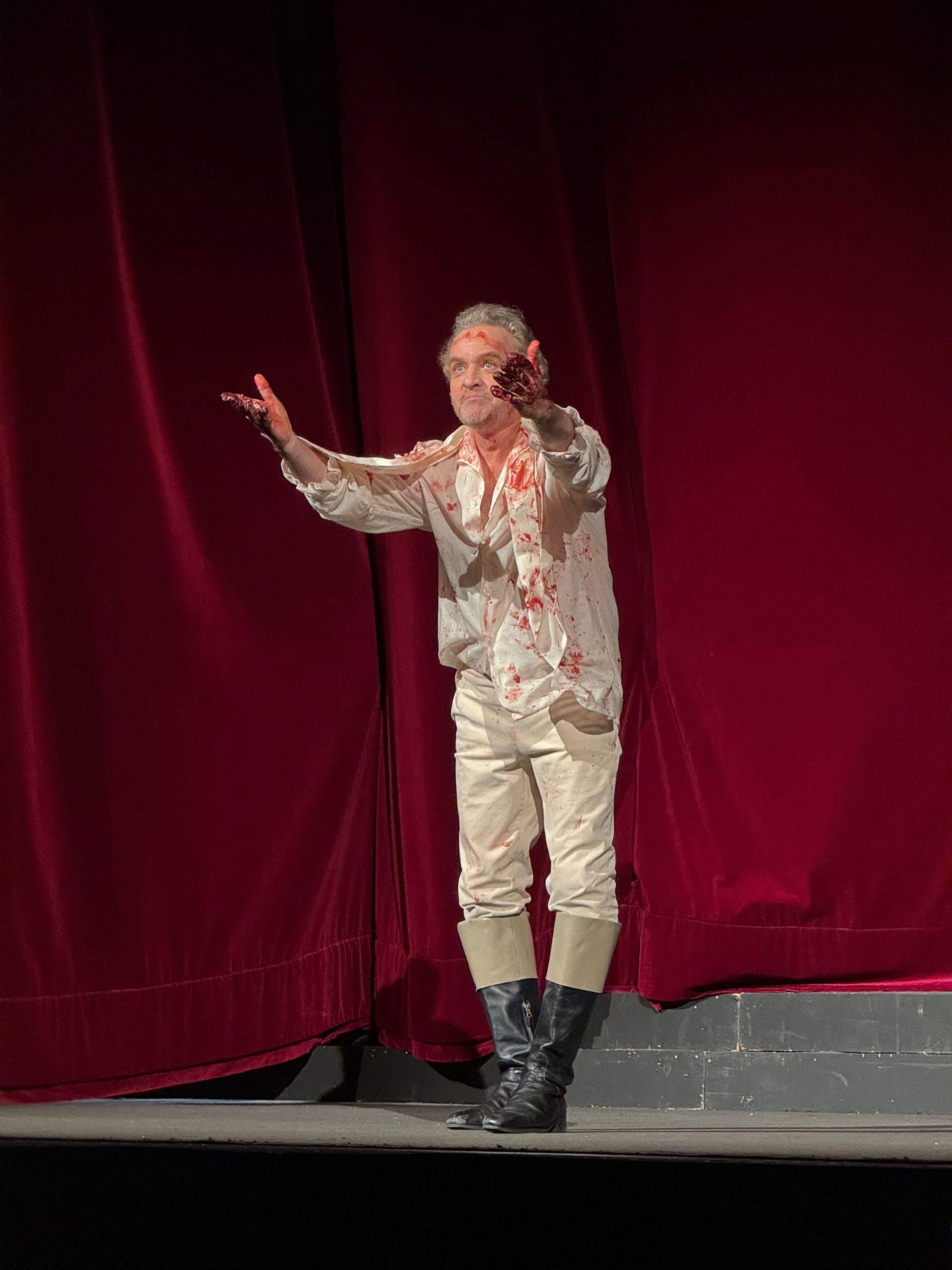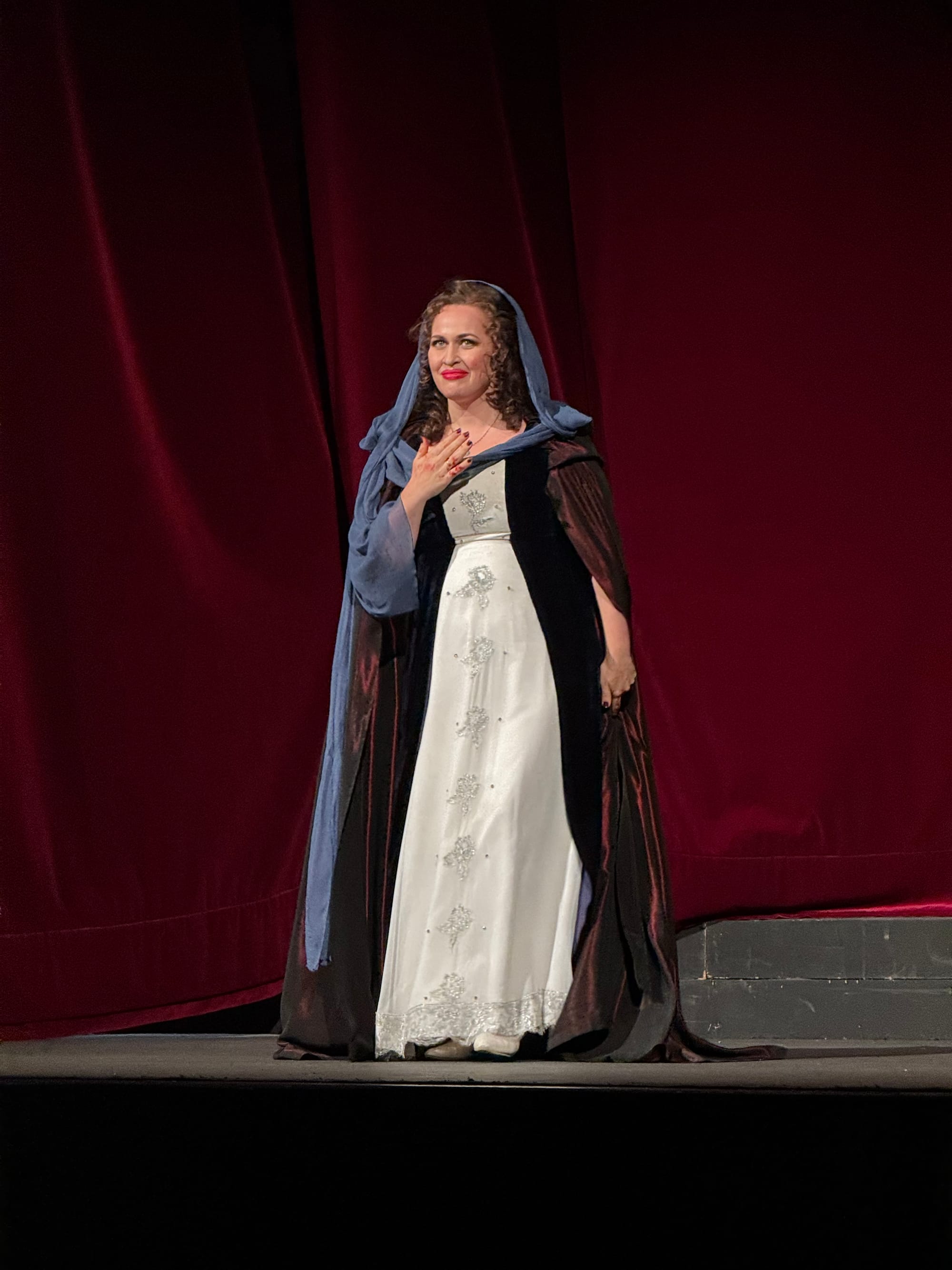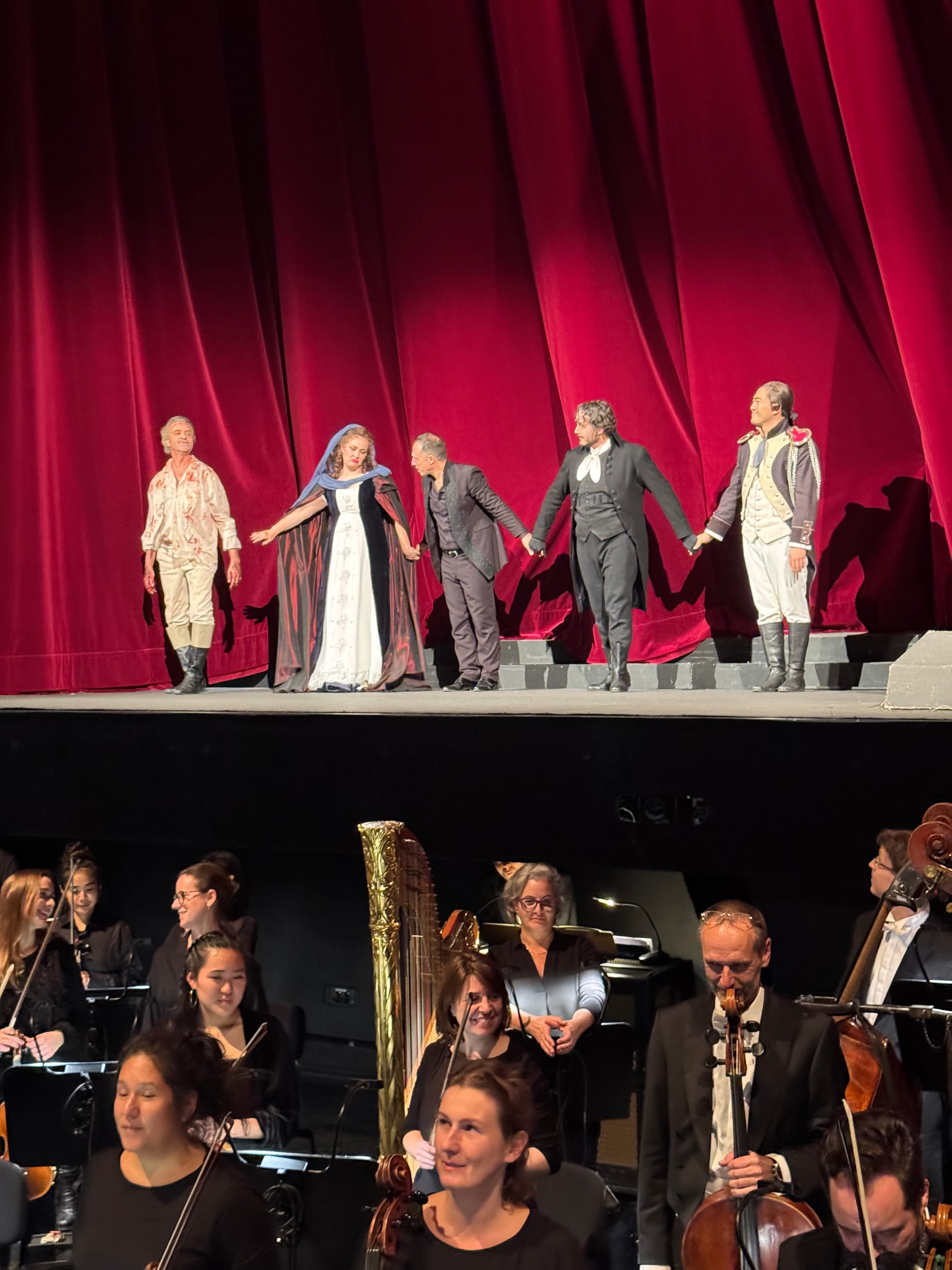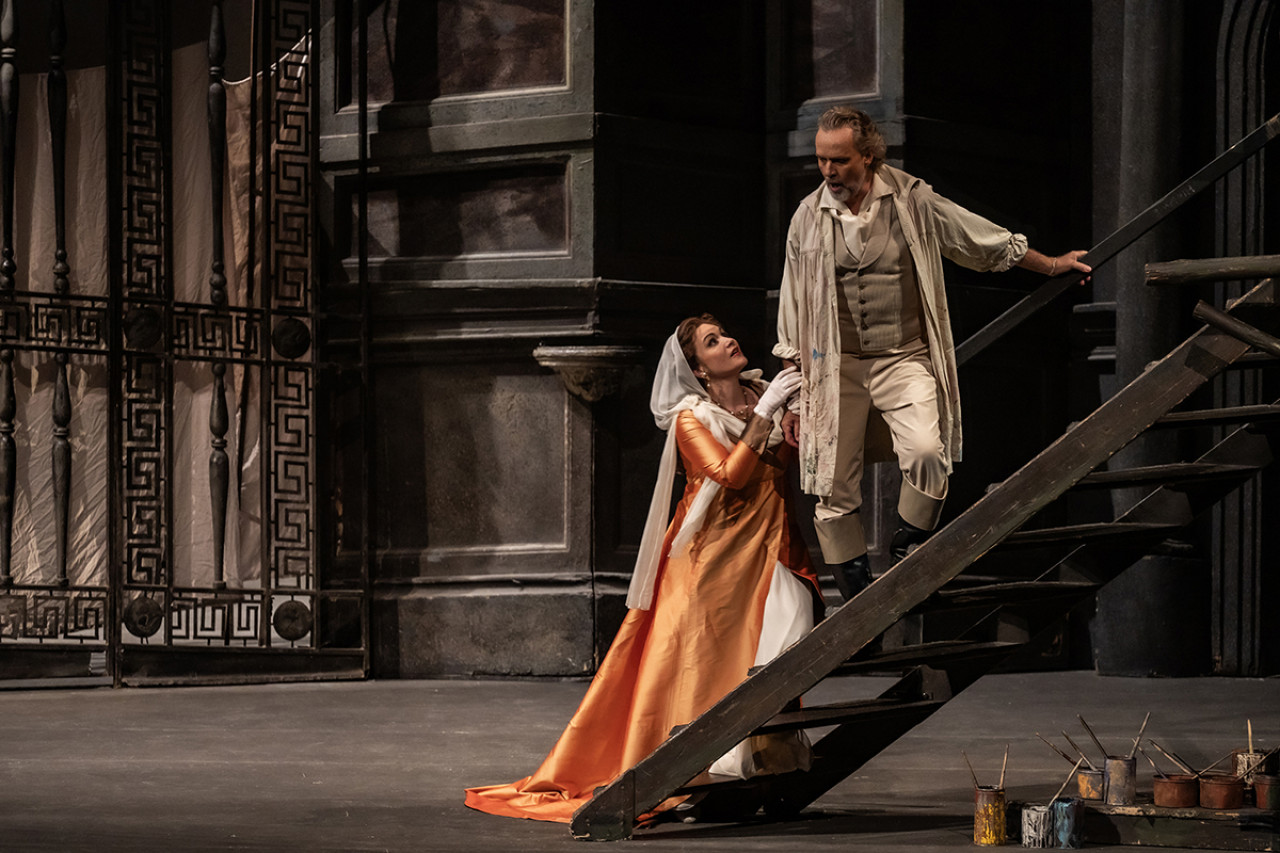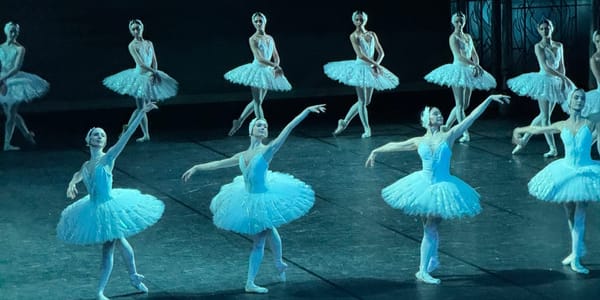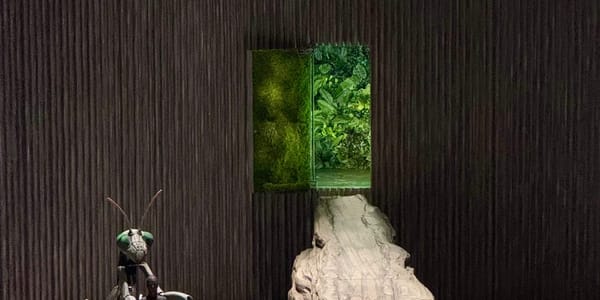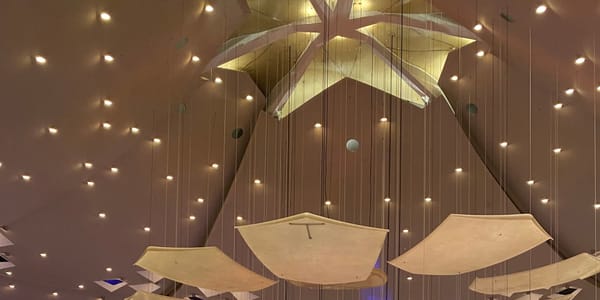Tosca at Deutsche Oper Berlin
Tosca is a thriller in which an unsuspecting artist couple living in an increasingly authoritarian Rome is caught up in larger-than-life (geo)political machinations and becomes collateral damage at the hands of a politician abusing the powers of his office for personal gain.
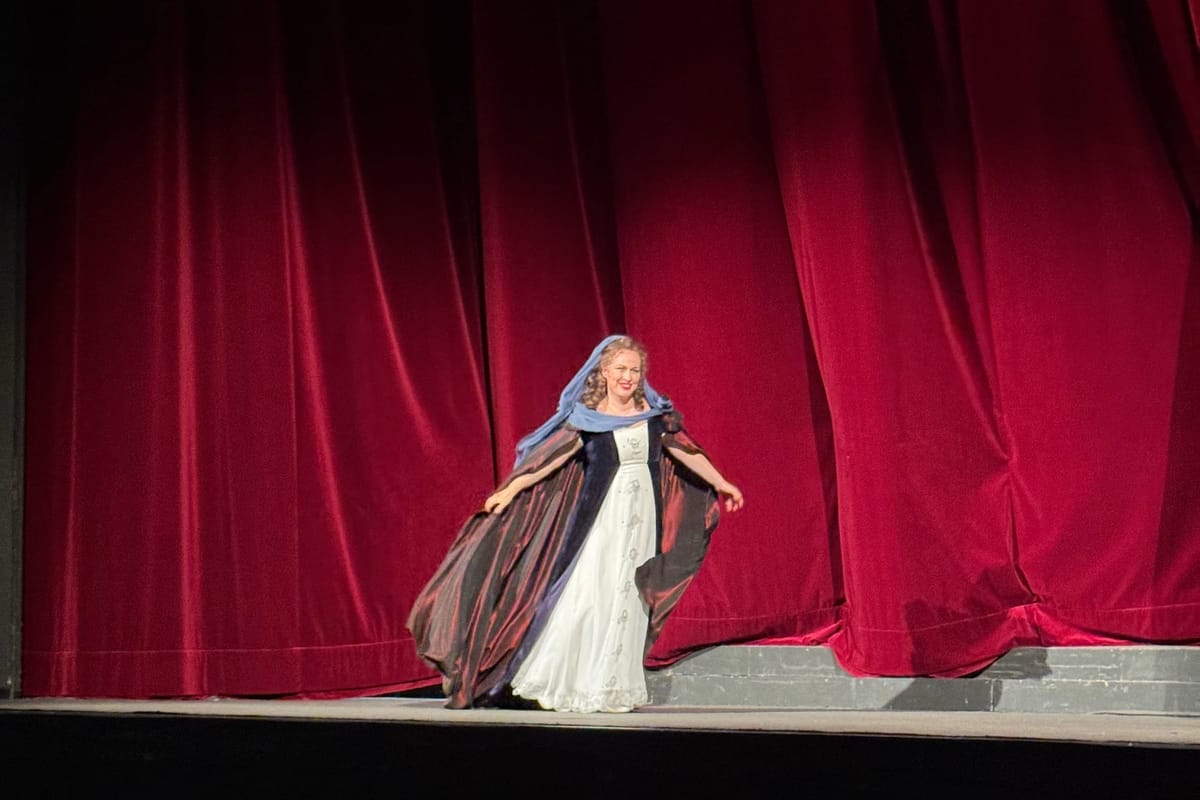
⭐️⭐️⭐️⭐️
🎭 Tosca
🎶 Giacomo Puccini
🏛️ Deutsche Oper Berlin
🗓️ 09.11.2024
The great thing about seeing opera classics again and again is that with every performance, there is something new to discover about these operas. Of course, often it is a different production or set design that makes re-watches interesting, but I find that even the music and libretto themselves have much to offer.
For last week‘s performance of TOSCA at Deutsche Oper Berlin (my third at DOB, and eighth? overall), I first realized that every major death is foreshadowed at least one act in advance. When Cavaradossi helps Angelotti out of the church, he does so “even if it costs him his life” (spoiler, it does). When Scarpia attempts to comfort a crying Tosca at the end of Act I, he “would give his life to dry those tears” (spoiler, he does). And in Act II, as a last resort to escape Scarpia‘s advances, Tosca is ready to jump from the open window (no need to spell this one out).
TOSCA is part of the standard repertoire of every opera house for good reason, and to me, it is one of the most beautiful pieces of music composed, ever. Puccini managed to create an opera that is simultaneously impressively grande in force, and yet incredibly intimate and emotional, as most of the storytelling is offered through one-on-one dialogue. Yes, many of Puccini‘s operas follow this formula—though to me, TOSCA is THE archetype. From the first powerful opening chords to the final whisper of the orchestra, the music is entirely captivating in a hand-over-heart-swooning kind of way.
The only thing I have to say about this pre-moon-landing (!) 1969 production is that it is simply a perfect TOSCA staging. The set design is beautifully detailed, the costumes are gorgeously rich, and every act offers an entirely new stage with slightly different vibes. The church in Act I is immaculate, a highlight being the procession in the background—sequestered, yet splendidly observable. Palazzo Farnese in Act II is imposing and gives off fittingly haunting absolutist vibes. And the real show-stopper is the simulation of sunrise in Act III, where the stage starts off in darkness but seems to change entirely until the execution at dawn, with views over Rome forming the backdrop (the light!!!! The sky!!!). Does this make me sound like a traditionalist? Maybe a bit. But there is so much depth to TOSCA, a radical transposition of the plot into another context is just not always necessary.
Speaking of plot: I see TOSCA as a thriller in which an unsuspecting artist couple living in an increasingly authoritarian Rome is caught up in larger-than-life (geo)political machinations and becomes collateral damage at the hands of a politician abusing the powers of his office for personal gain. TOSCA is set at a time where within a few weeks, Rome repeatedly falls in and out of the hands of an occupying power, submitting its inhabitants—and activists/Voltairians/defenders of civil liberties—to unprecedented political whiplash. (Does any of that seem familiar??) Tosca and Cavaradossi become victims a dynamic that is out of their control; they are unluckily at the wrong place at the wrong time. In this context, the raw emotional power unfurled by Puccini’s music makes complete sense to me—and, given the past decade of political development in my own life, perhaps also explain why this music remains so impactful to me, time and time again.
Here’s to many more upcoming TOSCAs, to peace of mind in a continuously unprecedented time, and to more uncovered secrets and sociopolitical plot reframings in opera classics.
